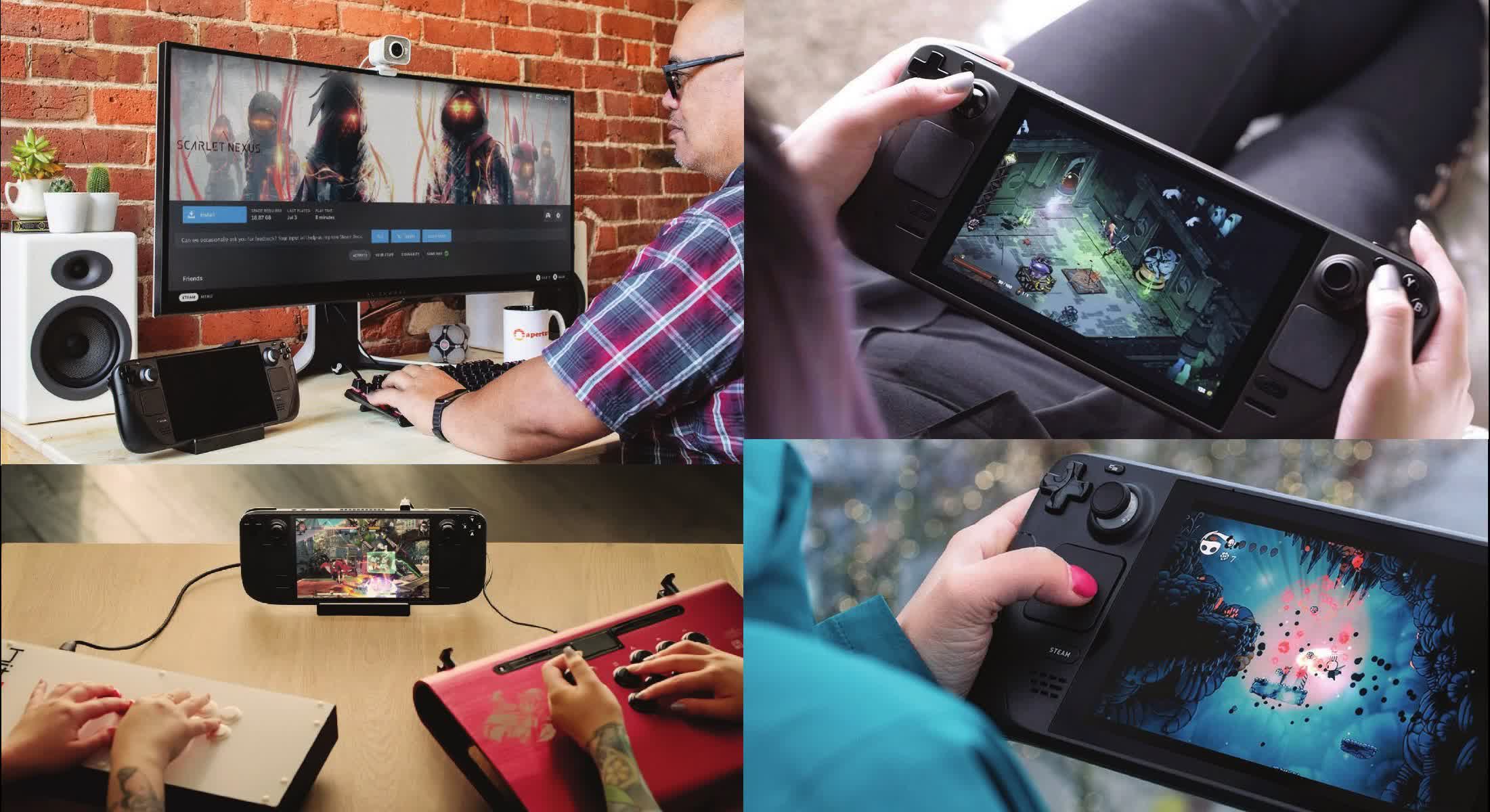Forward-looking: Speculation over a successor to the Steam Deck has circulated ever since Valve launched its handheld PC. The company gave the strongest confirmation yet this week that it plans to follow up its portable hardware, but without saying when.

On Thursday, Valve released a booklet about the Steam Deck that touches on the company's plans for future versions of the device. It didn't provide many specifics, but Valve isn't stopping at just one Deck.
Valve wrote the marketing booklet to explain the company's and Steam Deck's design goals to audiences in Asian territories like Japan, South Korea, Taiwan, and Hong Kong. It contains a concise description of Valve, Steam, and the Steam Deck for audiences who are possibly less familiar with them. It is available for download in English, Japanese, Korean, and Chinese.
The final page looks toward the future, calling the Steam Deck a "multi-generational product line." Valve explicitly confirms rumors of Steam Deck successors that emerged earlier this year. The company plans to improve hardware and software in future iterations while ensuring that subsequent Steam Decks can still access the same software and games as the inaugural unit.
"Steam Deck represents the first in a new category of Steam handheld gaming PCs. In the future, Valve will follow up on this product with improvements and iterations to hardware and software, bringing new versions of Steam Deck to market. Like the original, and like all PCs, these future products will continue to provide access to the same Steam game catalog that gamers already know and love."

In March, Valve boss Gabe Newell said he interpreted the success of the Steam Deck's most expensive model as evidence customers were interested in higher-end variants. He also expressed hopes for VR capability in a future model.
June rumors suggested AMD is working on an APU that could be the successor to the Steam Deck's "Van Goh" processor. It would feature faster RAM and efficiency gains from AMD's upcoming RDNA 3 GPU architecture. Information about the chip suggests a release toward the end of 2023 or later, which is fine. The current Steam Deck is nowhere near meeting its demand, so Valve is unlikely to replace it soon.
The Steam Deck isn't the only or the first handheld gaming PC, although its popularity may have stirred up the nascent sector. GamePad Digital (GPD) recently unveiled two new models of its Win series: the GPD Win Max 2, which looks like a mini laptop with analog sticks, and the GPD Win 4, looking more like a Sony PSP with a keyboard. The Max 2 features some of the same chips as the Steam Deck but is a bit more robust. It could eventually support Valve's Steam OS. Other options like the Ayaneo 2 and AYN Loki Zero have also emerged.
Aside from the handheld units, Valve also reiterated its plans to spread the Steam Deck's improvements to traditional PCs. Its user interface will form the basis of a new version of Steam's Big Picture mode. Soon, Chromebooks will also be able to play games using a Steam Deck-derived compatibility layer.
https://www.techspot.com/news/95779-valve-marketing-booklet-asian-markets-confirms-steam-deck.html